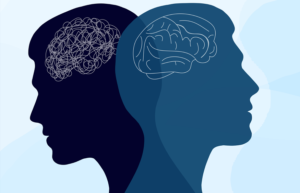Harnessing AI to Improve Population Health Management

AI technology in healthcare is gaining momentum
Population health management (PHM) focuses on improving health outcomes for groups of individuals by analyzing data and addressing factors that impact health. As healthcare systems strive to better manage their populations, AI technology in healthcare is proving to be a game changer, offering new ways to enhance PHM efforts.
What is Population Health Management?
At its core, PHM involves identifying health trends, assessing risk factors, and implementing targeted interventions. This can include everything from preventive care to chronic disease management. However, effective PHM requires comprehensive data analysis and actionable insights—areas where AI in healthcare truly shines. Leveraging specialized solutions can provide valuable support in navigating these complexities, such as those highlighted in population health management solutions.
The Power of Data Analysis
One of the standout advantages of AI in the medical field is its ability to process vast amounts of data quickly and accurately. Healthcare providers have access to a wealth of information, including electronic health records (EHRs), claims data, and social determinants of health. Here, AI solutions for healthcare can sift through this data to identify patterns, predict outcomes, and stratify patient populations by risk.
For instance, machine learning models can analyze historical data to pinpoint patients at high risk for conditions like diabetes or heart disease. By catching these patterns early, healthcare providers can implement preventive measures tailored to individual needs, potentially avoiding costly interventions later on. This ability to utilize AI in healthcare statistics allows organizations to make informed, data-driven decisions that improve patient outcomes.
Enhancing Predictive Analytics
AI also enhances predictive analytics, enabling healthcare organizations to forecast health trends and resource needs effectively. With predictive models, organizations can anticipate surges in demand for services, allocate resources wisely, and optimize care delivery. This proactive approach is especially crucial in managing chronic diseases, where early intervention can make a significant difference.
Personalizing Care
Another exciting benefit of AI technology in healthcare is the potential for personalized interventions. AI can analyze individual patient data—everything from demographics to health history—to create tailored care plans that resonate with specific populations. For example, AI-driven platforms such as Innovaccer’s AI platform can suggest personalized strategies that consider both clinical factors and social determinants, helping to address health disparities.
Engaging Patients
AI-powered chatbots and virtual health assistants are increasingly being used to enhance patient engagement. These tools provide real-time information, answer health-related questions, and remind patients about appointments and medications. By maintaining ongoing communication, AI solutions for healthcare can keep patients connected to their care teams and empower them to take an active role in their health.
Addressing Health Disparities
AI can also play a crucial role in identifying and addressing health disparities within populations. By analyzing data across different demographic groups, AI can reveal gaps in health outcomes and access to care. This insight allows healthcare organizations to develop targeted initiatives aimed at improving health equity, ensuring that all population segments receive the care they need.





